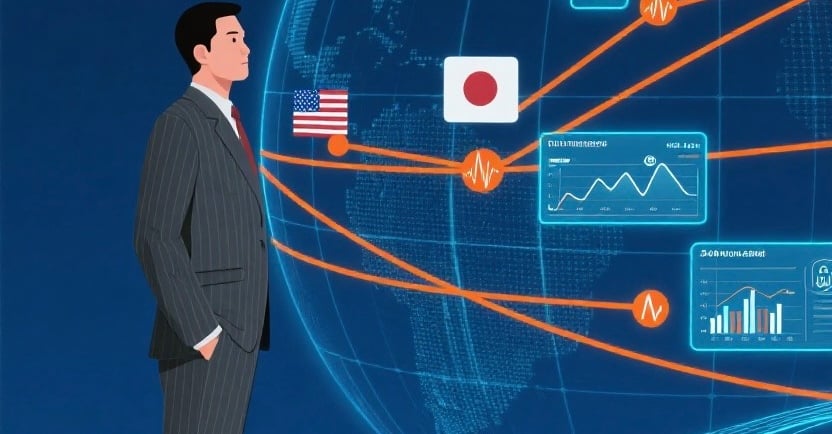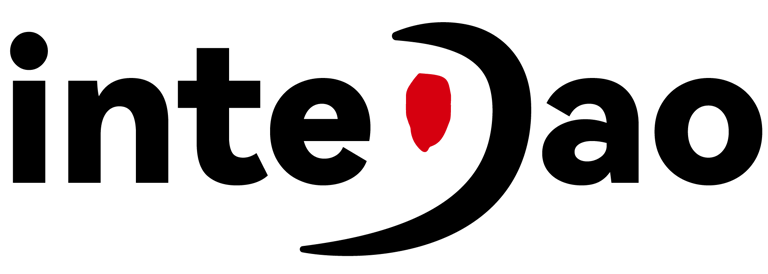Essential Reading for Chinese Companies Going Global: Three Key Questions for Global HRIS Selection, Breaking Through Overseas Risk Dilemmas
Is your HR system ready to handle GDPR, JSOX, and Southeast Asia's PDPA? Are overseas employees resistant to "Chinese-style management"? Missing opportunities due to slow system deployment? This article will help you understand the three key selection questions and break through overseas expansion dilemmas.


In the wave of globalization, Chinese companies face triple pressures: cultural conflicts, compliance risks, and employment challenges. A truly powerful global Human Resource Information System (HRIS) is not just a management tool—it has become a "survival necessity" for companies expanding overseas.
This article will focus on three core questions regarding overseas HR system selection, helping companies identify pain points, clarify logic, find suitable paths, and provide insights by referencing practices of mainstream international HRIS platforms like Workday.
Question 1: Does it have "Global Compliance Protection Capabilities"?
One overseas compliance incident could devour an entire year's profits—refer to GDPR, JSOX and other regulatory cases
Common challenges faced by companies expanding overseas include:
⚠️ Complex and ever-changing overseas compliance requirements (such as labor laws, data protection laws, tax and social security)
⚠️ Insufficient stability of regional HR service providers, potentially leading to service interruptions or support gaps
⚠️ Regulatory misjudgments or errors may result in hefty fines or even business disruption
Using Workday as an example, international HR systems provide the following compliance solutions:
✅ Multi-country compliance configuration capabilities
Provides labor law parameter support for 100+ countries/regions (contracts, probation periods, employment types, etc.) to help companies standardize employment processes
Payroll modules support multi-country automatic update calculation engines, ensuring adaptation to local tax laws, social security deductions, and other rules
Collaborates with local suppliers to build integrations and construct end-to-end compliance solutions (such as ADP SmartCompliance)
✅ System-level compliance assistance
Provides audit logs, operation tracking, and supports compliance report exports (such as SOX reports)
Offers data access, access control, data purging and other functions to meet data privacy regulations (GDPR, PDPA, etc.)
Key elements like contracts, visas, and working hours support reminder mechanisms to reduce oversight risks
✅ Zero trust crisis
Choose mainstream global SaaS platforms to avoid the risk of support interruptions from local small vendors
Already certified with various international privacy standards (SOC 1/2, Privacy Shield, etc.)
Question 2: Does it have "True Global DNA"?
Using Chinese management logic to manage overseas teams may cause cultural misunderstandings and execution difficulties
Common "culture shock" problems encountered by companies expanding overseas:
❌ Overseas employees resist "Chinese-style" systems
❌ HR teams get stuck in training quagmires
❌ Organizational expansion speed is dragged down by systems
Advantages of international HR systems like Workday:
🌍 Built-in global best practices
Native support for multiple languages/currencies/time zones, ready for employees to use out of the box
Built-in core processes common to multinational companies, improving management consistency (such as recruitment → onboarding → transfer → departure)
🌍 Friction-free cultural design
Interface design considers user habits in different markets, for example, European and American users prefer simple and intuitive operations, while Southeast Asian users place more emphasis on interactivity and mobile experience
Low learning curve for overseas teams, quickly supporting business expansion
🌍 Compliance intelligence hub
Automatically adapts to employment regulations in various countries, acting as a "24-hour HR compliance consultant"
Solves the shortcoming of Chinese companies' limited overseas management experience
Question 3: Can it Achieve "Agile Deployment and Real-time Insights"?
Overseas expansion is about speed and responsiveness—systems cannot become a bottleneck
Challenges of traditional deployment methods:
⌛ Long system deployment time for each country, difficult to match business expansion pace ⌛ Serious data silos between systems, difficult to support unified global analysis and decision-making ⌛ System performance under pressure when business surges, insufficient scalability
Advantages of new-generation SaaS HRIS (using Workday as an example):
🚀 Modular deployment and global replication capabilities Configurations from countries already online can be quickly replicated to new countries, significantly shortening deployment cycles
🚀 End-to-end integration
Deep coupling of recruitment/compensation/performance
Seamless integration with financial systems (Workday Financials)
Real-time mapping of HR costs to financial results
🚀 Data-driven decision making
Real-time reports and dashboards support global perspective insights
Early identification of potential risks (such as overtime work in certain locations, contract expirations, etc.) to avoid reactive responses
Is Your Company Suitable for International HRIS like Workday?
▶️ If you're considering whether to introduce international HRIS like Workday, the following criteria can serve as reference for judgment:
Business covers ≥ 3 countries/regions
Overseas employee numbers continue to rise, compliance risks significantly increase
Company revenue has reached scale, unwilling to bear high losses from compliance incidents
▶️ During the evaluation process, you should also be alert to the following risks:
Regional products may have lower prices, but regulatory updates and overseas support often lag behind
"Patchwork systems" may have significant risks in data integration and consistency
Overseas, compliance is the survival baseline, and efficiency is the growth engine
Although international platforms like Workday and SAP require higher initial investment, their risk mitigation value in global compliance, process consistency, and business stability often far exceeds the investment, making them the preferred choice for many leading companies.
For Chinese companies and software vendors currently in the overseas expansion phase, this represents both a challenge and an opportunity for upgrading: as Chinese companies go global, they also need to align with mature global practices; if domestic vendors hope to truly participate in global competition, they need to fill the gaps in "compliance and internationalization" capabilities.
Interested in or have questions about the perspectives and content in this article? As practitioners deeply rooted in the HRIS field, we are committed to helping more enterprises and individuals efficiently complete HRIS projects. If you're looking for more professional and customized solutions, please contact us via LinkedIn. Let's explore together how to make HRIS truly empower your business!
